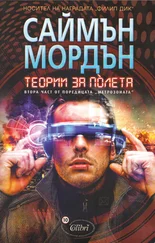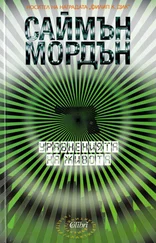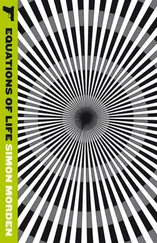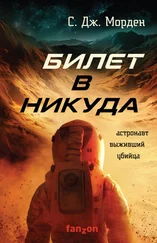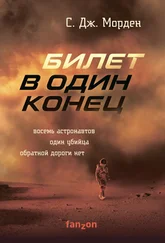He undid the bottle with his teeth and spat the cap out. He drank half the water. It was a poor substitute for coffee. He unlocked Sonja’s phone and called her up.
“Hey. I’m walking down Cleveland Street toward your lines. No one’s going to take a pot-shot at me, are they?”
“Sam? What’s going on?” She sounded lost.
“Well now. At the risk of sounding like a pre-Armageddon cop show, you’re surrounded. I’ve a few thousand armed ex-soldiers and police blocking off every road away from the tower, and they know what to do if I don’t come back. One way or another, this ends today. How it ends is up to you, but I thought it worthwhile to try and talk our way to a solution rather than start another war.”
“I… I can see you.”
Petrovitch’s eyes tried to zoom in all the way to the top of the structure, but the reflections of sky off the slabs of glass defeated him. He raised the bottle of water anyway, and kept walking.
“So what’s it going to be? Can we talk?”
“We could always talk, but you never needed to be actually there, did you?”
“No. This time, though, it’s important to do it face to face. We need to see the windows of each other’s soul. No lies. Just the truth, and I don’t care how uncomfortable that is for either of us.”
The barricade of cars was just ahead, and he found he’d collected several glowing red laser dots that buzzed around his chest. It looked like most of the shooters wouldn’t be able to hit a double-decker at ten paces, but as Madeleine had pointed out, it’d only take one bullet.
He stopped and looked at the figures crouching behind the trunks and hoods, fixing each one of them with a hard stare. He saw them nervous, panicky even. Not a good combination with firearms.
“They’re not going to shoot me, are they?” he asked Sonja.
“They know not to. Whatever happens.”
“I suppose I’ve bet my life on longer odds,” he said. He shrugged and kept on going until he was on one side of a red family-sized car, and the Oshicora guards on the other. One man lowered his rifle, and with a little shake of his head, told his colleagues to do the same.
“Petrovitch-san. We cannot let you pass.”
“Yeah, about that. I’m coming through whether you like it or not. So either you shift these cars, or I’ll shift them for you.”
The man in charge—at least, the man who had assumed leadership in the absence of anyone else—regarded Petrovitch’s broken form. “That would seem unlikely.”
Petrovitch set his bottle of water down on the road and unhooked one of the spheres hanging from his arm. “Unlikely? Give me a lever long enough and a place to stand, and I could move the world.” He put the hook through the door handle and fiddled with a switch.
“What are you doing?”
“I’m priming this singularity generator. I’ve never used one of these things in the open before, so I have no idea what’s going to happen.” He made a face. “That’s not strictly true: I know that for a length of time too small to measure, a black hole is going to appear at the very center of this ball, and everything around it is going to want to fall inside it, even light itself. I’ve used them for tunneling, and once, I destroyed the inside of a house using just one of these.”
“Is it a bomb?”
“No. Bombs explode.” He gazed over the top of the car. “This sucks big time, and I really wouldn’t recommend being anywhere near it when it turns on.”
He leaned forward and pressed the button next to the switch. A light flicked from green to red. He scooped up his water and started to back up. The men on the far side of the barricade began to move away, too.
“The thing is,” called Petrovitch, “the timer was made by a fifteen-year-old girl. She’s normally pretty good at stuff like this, but you know how difficult it is to read the right value off a resistor when it’s late and your eyes hurt.”
He’d put five meters between him and the device and he was sweating. It wasn’t far enough, and he hadn’t been joking about the timer. He kept on walking backward, as fast as he could manage.
Yet perversely, he didn’t want to miss a single moment.
And right on cue, the bomb vanished like a darkly shining flashbulb. The car it was attached to spasmed and warped. In a blink, it was tiny, inside out, glowing with blue fire. The road pocked, bloomed, tarmac ripped free, the cobblestones underneath shattering into dust. The vehicles on either side jerked like they’d been struck by a runaway truck, twisting around, dragging their tires, bending, breaking, glass flying.
He could feel the momentary pull himself, a vast hand reaching out to haul him irresistibly inward. He stamped down hard, leaning back, and lost his footing anyway. His backside connected with the road surface at an angle, and slid a heart-stopping but insignificant distance toward the mangling wreckage and opening crater.
The air was full of fumes. There was a pop, and a pool of gasoline ignited, burning with a sooty red flame. Within a second, everything had stopped moving, and Petrovitch could get up again.
The flanking cars were both half in the hole in the road, their paintwork cracking and flaking in the heat, their panels hanging off and their chassis bent like toffee. Of the third car, there was nothing to be seen. Yet the windows in the surrounding buildings were untouched.
He still had three of those bad boys hanging from his arm, and he felt invincible. He skirted the tipped-up rear of one car and ignored the guards sprawled in the road, mere mortals all.
“Hi, Sonja.”
“Oh my God.” She would have seen it all. She would have had a better viewpoint than Petrovitch. “That’s what it does.”
“Tell whoever’s on the front desk not to get in my way. I know you can’t call them, but the ground floor is only thirty seconds away. You can’t bar the doors against me, and if you block the lifts, I’ll just walk up. It’ll take longer, and I’ll be pissed off when I get there, but it’s inevitable all the same.”
He heard her issue a hurried instruction, then come back breathless. “Sam. I can’t… I’m scared.”
“I’m not. Not anymore.” The low building that sat at the base of the tower was just beyond the next junction. He was being watched, but not by millions across the globe: just by a few hundred. Some were pressed, like their employer, against their office windows as he strode up to the street-level canopy that hung over the doorway. Others, armed guards forming a secondary line of defense, huddled in doorways and behind pieces of street furniture. They let him pass, and he didn’t expect anything less.
He had schematics, architects’ plans, photographs. He could navigate his own way to the elevator shaft, and he’d ride in one all the way to the top, despite his dislike of that mode of transport. It was true: he wasn’t frightened at all, by anything.
Petrovitch barged through the doors and marched through the foyer.
“Get the kettle on. I’m coming up.”
The acceleration of the elevator made him feel squat and heavy. Its deceleration made him fluttery and dizzy. He’d ridden up alone, and now waited for the doors to spring wide.
When they did, he found himself looking out at a whole crowd of people pressed together, forming a rough semi-circle around the elevator. They shrank back as one as he stepped forward, then silently filtered around him, trying to put as much distance between them and him as possible. One by one, they squeezed into the elevator car, and when it was full, the doors closed again.
There was just a handful left behind, and as the second elevator came back up, they hurriedly left too. All that remained were empty desks, blank computers, and abandoned chairs halfway across the floor. The humanizing knick-knacks of office life were still present—photographs, mascots, pot plants—but not the humans. Bar one.
Читать дальше

![Саймон Морден - Билет в никуда [litres]](/books/388091/sajmon-morden-bilet-v-nikuda-litres-thumb.webp)
![Саймон Морден - Билет в один конец [litres]](/books/395533/sajmon-morden-bilet-v-odin-konec-litres-thumb.webp)

